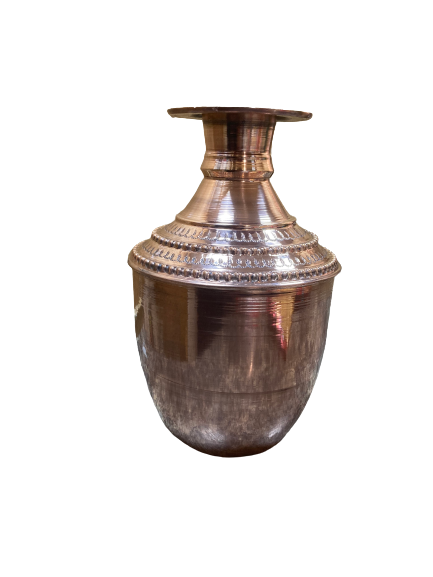

Table of Contents
Proper hydration is essential for maintaining overall health. If the body lacks sufficient water, it becomes under-hydrated (dehydrated). If it has an excessive amount of water, it results in over-hydration (water intoxication). The ideal state, where the body has just the right amount of water, is called perfect hydration. This article explores these three conditions in detail.
Under-Hydrated (Dehydration) – Lack of Water in the Body
Under-hydration occurs when the body does not have enough water to function optimally.
Symptoms
Dry mouth and lips
Dull or dry skin
Dark yellow or reduced urine output
Fatigue and weakness
Headaches
Constipation
Low blood pressure
Causes
Insufficient water intake
Excessive loss of fluids due to diarrhea, vomiting, or sweating
High intake of caffeine or alcohol
High sodium (salt) consumption
Solutions

Drink clean and adequate amounts of water regularly
Avoid excessive intake of alcohol, caffeine, and salty foods
Consume seasonal fruits and water-rich foods
Over-Hydrated (Water Intoxication) – Excess Water in the Body
Over-hydration occurs when the body retains too much water, leading to an imbalance in electrolytes, especially sodium. This condition is also known as water intoxication.
Symptoms
Frequent urination
Swelling or bloating in the body
Muscle weakness or cramps
Confusion or dizziness
Increased pressure in the brain
Circulatory issues
Causes
Drinking too much water in a short period
Kidney dysfunction, leading to improper filtration of excess water
Athletes or marathon runners consuming excessive water without replenishing electrolytes
Solutions

Maintain a balanced water intake
Check electrolyte levels, especially sodium and potassium
Seek medical advice if necessary
Perfectly Hydrated – The Ideal State
A perfectly hydrated body functions efficiently and maintains good health.
Characteristics

Healthy and glowing skin
Clear or light yellow urine
Feeling energetic and refreshed
Proper digestion and metabolism
Optimal physical and mental performance
How to Stay Perfectly Hydrated?
Drink water according to thirst and body requirements
Prefer clean, fresh, and mineral-rich water
Increase water intake in hot weather and physical activity
Adjust water consumption based on lifestyle and Ayurvedic body type (Vata, Pitta, Kapha)
Conclusion
Maintaining proper hydration is crucial for overall well-being. Both dehydration and over-hydration can have negative effects on health. Ayurveda emphasizes balancing water intake based on individual constitution and lifestyle. By following mindful hydration practices, one can achieve perfect hydration, ensuring long-term health benefits.
Water and Life
Water is nature’s most precious gift. The existence of all life depends on water. It is one of the most essential resources on Earth, not just for humans but for animals, plants, and even microscopic organisms. Every aspect of life, from basic survival to advanced civilizations, is deeply connected to water.
Biological Role of Water
Water is indispensable for all living beings. Some of its biological roles include:
70% of the human body is water: Nearly 70% of the human body is composed of water.
Essential for digestion: Water aids in digestion, absorption of nutrients, and elimination of waste.
Blood circulation and cellular functions: It helps transport oxygen and nutrients to cells and maintain cellular activity.
Temperature regulation: Sweating helps in thermoregulation and prevents overheating.
Brain function: Water keeps the brain active, improves memory, and enhances mental clarity.
Natural Sources of Water
Water is available on Earth in various forms:
Natural sources: Rivers, lakes, ponds, waterfalls, glaciers, underground water
Atmospheric sources: Rain, snow, dew
Man-made sources: Wells, reservoirs, dams
Water Scarcity and Its Impacts
The lack of water leads to several issues:
Health problems: Dehydration, kidney diseases, digestive issues, and skin disorders
Food crisis: Lack of irrigation affects agriculture, leading to food shortages
Environmental impact: Deforestation, desertification, and loss of biodiversity
Social and economic consequences: Water conflicts, economic downturns, and forced migration
Clean Water and Public Health
Consuming unclean water can cause diseases like cholera and dysentery.
Boiling, filtering, or treating water is essential for safe consumption.
Water is crucial for hygiene and sanitation.
Water Conservation Methods
To preserve water, we must adopt sustainable practices:
Rainwater harvesting
Efficient irrigation techniques
Recycling wastewater
Avoiding unnecessary wastage
Climate Change and Water Resources
Climate change has significantly impacted water resources. Glaciers are melting, rainfall patterns have become unpredictable, and water shortages are increasing. To counteract these effects, adopting eco-friendly lifestyles and sustainable water management practices is necessary.
Policies and Water Management
Governments and local authorities should implement sustainable water policies, including community involvement, legal regulations, and modern technology for efficient water utilization.
Conclusion
Life is impossible without water. If we continue to misuse and pollute water, future generations will face severe water crises. Therefore, it is our responsibility to conserve and manage this vital resource to ensure a sustainable and secure future.



9oymt4
9io3tq
8gfp5o